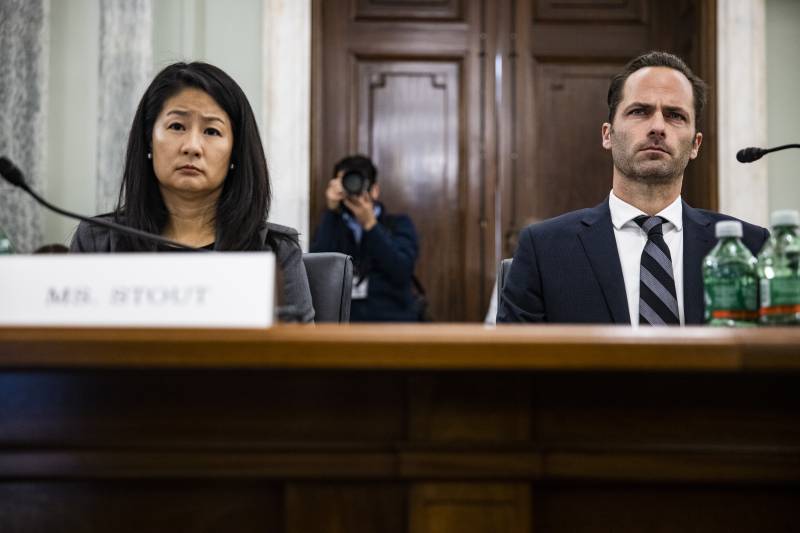Sen. Amy Klobuchar, D-Minn., noted other cases where young people obtained drugs through Snapchat, including one young man who died after purchasing the painkiller Percocet laced with fentanyl on the app.
Snap has stepped up detection measures to root out drug dealing on the platform and launched an education campaign to steer users away from those peddling drugs on the app.
“We are absolutely determined to remove drug dealers from Snapchat,” Stout said.
Officials from all three companies were asked about instances where the platforms were found to have fed young users material about sex, self-harm or content that worsens body-image issues.
In response, the officials evaded responding to particular examples and instead stated generally that such content would violate its rules and be removed.
“We prohibit content that promotes or glorifies such things as eating disorders, but we also realize that users come and share their stories about these experiences,” said Miller.
At YouTube, Miller said, experts help develop content moderation policies. More than 90% of content that violates its community guidelines is detected through its artificial intelligence, according to Miller.
3. TikTok’s ties to China were in the spotlight.
TikTok, which has more than 1 billion monthly active users around the globe, was grilled about an issue that first landed it in hot water during the Trump administration: its ties to China.
TikTok is a U.S. business that is a subsidiary of ByteDance, a Beijing-based tech giant.
Officials at TikTok have long said that Americans’ data is primarily stored in the U.S. and safeguarded from the Chinese authorities.
Lawmakers, led by Sen. Ted Cruz, R-Texas, questioned those safeguards, and pushed Beckerman on whether U.S. user data is shared with ByteDance, accusing TikTok of being cozy with Chinese authorities.
Cruz asked Beckerman whether TikTok’s privacy policy permits ByteDance unfettered access to Americans’ personal information.
Beckerman did not directly answer the question, pointing out that TikTok does not exist in China. The app’s Chinese counterpart is known as Douyin.
“That does not give this committee any confidence that TikTok is doing anything other than participating in Chinese propaganda and espionage on American children,” said Cruz.
“That is not accurate,” Beckerman shot back.
China-based ByteDance engineers do have access to U.S. user data, but can only gain such access with permission from an American security team, a top TikTok security official said last year in a sworn statement as part of the company’s legal battle with the Trump administration.
“We do not share information with the Chinese government,” Beckerman told senators on Tuesday.
4. The companies refused to commit on legislative proposals.
Even though there is bipartisan support in Washington to regulate the tech industry, Democrats and Republicans differ in diagnosing the problem, and sometimes have opposing solutions.
Nonetheless, senators discussed a range of legislative proposals, like an update to a law known as Section 230 that provides a legal shield to the industry.
In addition, bills that would protect the online privacy rights of children, ban ads targeting young users and eliminate core features of social media, including “like” buttons, autoplay and push alerts, were also put to company officials.
Most of the time, however, lawmakers could not pin down the positions of the tech company representatives on various proposals.
After the officials refused to offer clear answers on whether they supported a law that would regulate how tech companies can collect personal data from teenagers, Markey became frustrated.
“This is just what drives us crazy, ‘We want to talk, want to talk, want to talk.’ This bill’s been out there for years, and you still don’t have a view on it,” Markey said.
Blumenthal, too, grew impatient with the answers from the company representatives on specific pieces of legislation that would impose greater restrictions on the tech industry.
Markey said it wasn’t enough to simply support the goals of the legislation, as the officials said that they did. “That’s meaningless if you don’t support the legislation,” he said.
Editor’s note: Google, which owns YouTube, is among NPR’s recent financial supporters.
